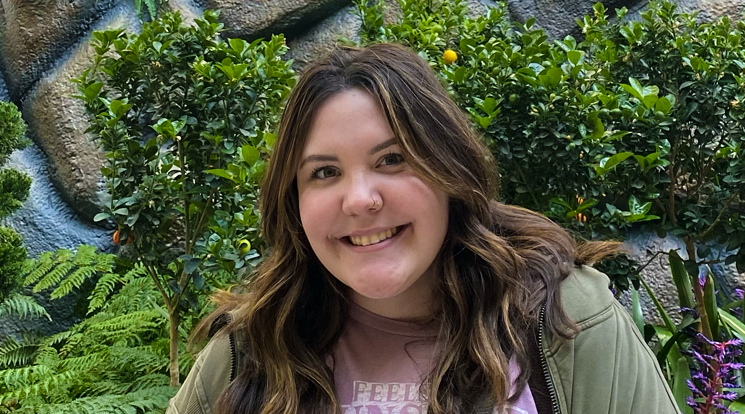Student voices at MLFTC: Madison Stallard

Madison Stallard (BAE, ’23) chose to pursue her studies at Arizona State University’s Mary Lou Fulton Teachers College where she saw an opportunity to blend academic rigor with her interest in educational equity.
Stallard, who is also part of Barrett, The Honors College, collaborated with one of her classmates to create a student organization that seeks to empower future educators to better serve students of diverse, economically challenged backgrounds.
As she prepares to graduate, Stallard reflects on how her experience at MLFTC has prepared her for her professional journey. She also notes how she and her fellow students were inspired by Principled Innovation, a framework developed at MLFTC for guiding individual and organizational decision-making that is now ASU’s newest design aspiration.
What made you want to become an educator?
I knew that I wanted to become an educator when I was in 3rd grade, and that passion became even stronger over time. My mom is a paraeducator in a middle school resource classroom, so I grew up seeing how educators can transform lives and inspire others through learning. Through my mom I learned the value of establishing strong relationships with students, and how being an effective educator means also making an effort to understand and participate in the wider community. I am also drawn to causes that support greater equity in our society, and I believe that educational access and opportunity are key to establishing that goal.
Share with us what made you choose MLFTC?
I chose MLFTC because I wanted to gain a deeper understanding of the profession from an institution that has a strong reputation for preparing educators. It also was important for me to be part of a community that reflects the diverse experiences and backgrounds of the communities I will go on to serve.
In addition, I had the opportunity to be part of Barrett, The Honors College, which connected me with students and faculty throughout ASU. This provided me with even more options to pursue research and expand my knowledge through interdisciplinary connections.
What are ways that you have been able to transform your own life and those of others?
My experience at MLFTC put me in contact with so many thoughtful, interesting and smart people. I became close friends with students whose lives were very different from mine, and yet we all shared the same hopes and aspirations to address society’s inequities through education.
Through these relationships, I started a student organization in partnership with one of my classmates called Champions for Hope. The purpose has been to create a forum through which we can have honest, open conversations about race and ethnicity, socioeconomic status and mental health as we prepare for creating a positive educational experience for our own future students.
How did you find inspiration from Principled Innovation?
As we started to articulate the purpose of Champions for Hope, it became clear that we could incorporate some of the elements of Principled Innovation, which is a framework developed through MLFTC and that is now being expanded throughout ASU.
Through our faculty advisor, Teresa Panneton, we found ways to integrate elements of Principled Innovation, which offers approaches to encourage ethical decision-making that can inform simple and complex actions at both individual and systems levels. In the case of our student organization, we found that Principled Innovation could help us guide conversations around equity, inclusiveness and taking responsibility for the wellbeing and success of the communities we will go on to serve.
How do you see these approaches helping to guide you as an educator?
If I had to sum it up in one word, for me it would be about intentionality. I want to make sure that my actions, my words and my interactions with students are very intentional and that I'm acquiring different perspectives and experiences that allow me to better be able to support my students.
Systemic changes happen at many different levels. I can see how these approaches can help engage educational organizations in considering and implementing decisions of policies or processes. For educators in the classroom, it’s important for us to create a safe space for our future students, and Principled Innovation helps us better serve the communities we are going to be part of.
Student voices at MLFTC is an ongoing series featuring students at ASU's Mary Lou Fulton Teachers College.
Learn more about Principled Innovation.